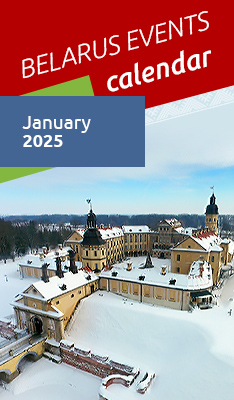Opinions & Interviews
Year of Science should see consideration measures to support scientists in Belarus

GRODNO, 31 January (BelTA) – The Year of Science should witness considerable measures to support scientists, Chairman of the Grodno Oblast Executive Committee Vladimir Kravtsov said as he met with scientists at Yanka Kupala Grodno State University on 31 January, BelTA has learned.
“Scientific progress is a crucial factor for the country’s development. Those creating cutting-edge technologies have more prospects for economic growth than those having to buy them, though I admit that purchasing technology is also important. In the Year of Science, we want to take real steps to support scientists and science in Grodno Oblast, first of all, to improve the research facilities and equipment for their work. The creation of a science and technology park for supporting young scientists, an innovative center, will be of great help. The funds have been already set aside in the regional budget, the project roadmap has been already developed,” the governor said.
“In my opinion, university science is the most vigorously developing sector in the region. In Grodno Oblast, it is complemented with
fundamental and applied research, which benefits the manufacturing sector and agriculture, education, healthcare, and other industries. The priority areas of research are the following ones: nano- and biotechnology, ecology, optics, laser physics, resource saving, new materials. Medical schools of the region enjoy well-deserved recognition. Grodno Oblast is home to one of the country’s most important R&D centers specializing in agriculture. Grodno universities have agreements with local enterprises and companies, and this cooperation yields positive results,” Vladimir Kravtsov added.The governor presented honorary certificates of the Grodno Oblast Executive Committee and the local Council of Deputies to scientists from Grodno Oblast. Young scientists received accolades for their achievements.
In Grodno Oblast there are 108 doctors of sciences and more than 700 candidates of sciences, one academician and three associate fellows of the National Academy of Sciences of Belarus. The region has three academic R&D institutes. Four universities are involved in scientific research.








 print version
print version make home page
make home page add to bookmarks
add to bookmarks

